High-Intensity Focused Ultrasound (HIFU) in Israel
Search and Compare the Best Clinics and Doctors at the Lowest Prices for High-Intensity Focused Ultrasound (HIFU) in Israel
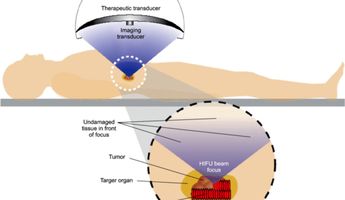
Find the best clinics for High-Intensity Focused Ultrasound (HIFU) in Israel
No pricing info available
Indonesia offers the best prices Worldwide
Price: $ 56
From 109 verified reviews
Y N, 22 September 2020
Excellent medical center, with friendly staff and highly qualified doctors.Thank you for your work.My operation was successful
From 122 verified reviews
fadi hreaz, 27 August 2020
Hospital gives reasonable treatment but poor sorting
- Home
- Israel
Compare Before & After Photos of _procedure_photos.phpHigh-Intensity Focused Ultrasound (HIFU)
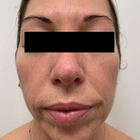
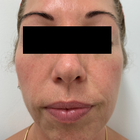
Front view
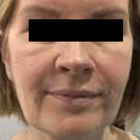
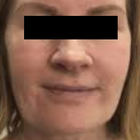
Front view
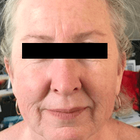
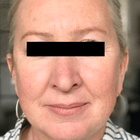
Front view
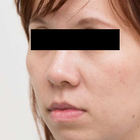
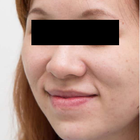
Front view
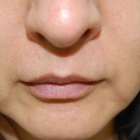
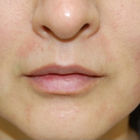
Front view
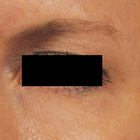
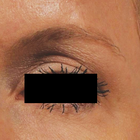
Front view
WHY US?
At Medijump, we're making medical easy. You can search, compare, discuss, and book your medical all in one place. We open the door to the best medical providers worldwide, saving you time and energy along the way, and it's all for FREE, no hidden fees, and no price markups guaranteed. So what are you waiting for?

Free

Best Price

Widest Selection

Risk-Free
What you need to know about High-Intensity Focused Ultrasound (HIFU) in Israel
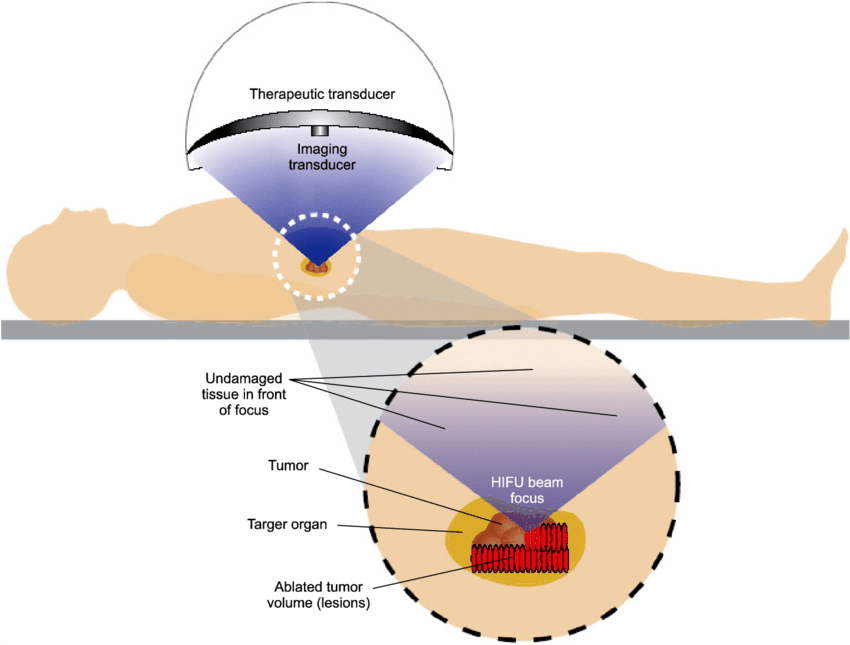
High intensity focussed ultrasound technique (HIFU) also known as focussed ultrasound surgery (FUS), uses non-ionizing ultrasound waves to heat up your body tissues. Temperature can be increased up to 70 to 90°C. These sound waves do not pass through air and bone. It is used for multi-purposes. It works to increase your blood, and lymph flow stimulates cell division and destroys tumor cells. It can also be used to treat a number of disorders including various types of cancer and uterine fibroids. Its use in the treatment of prostate cancer is gaining fame. It can also be used for cosmetic reasons, to reduce wrinkles, aging lines and to lift your loose skin. It is found to be most effective on jawline and cheeks. It should always be performed by the experts because the sonication of the wrong tissue can be dangerous. Also, there might be incomplete destruction of the tumor. Some areas of your body can not be sonicated as they are sensitive to sound waves, this should also be kept in mind while performing HIFU. It can only be used to treat localized cancer and tumors. Cancer which has spread cannot be cured through HIFU.
As HIFU is involved in the treatment of a number of diseases, before going through it, you may suffer from those diseases. These disorders include ovarian fibroids, different types of cancers, breast tumors, Parkinsonism, and a number of other neurological disabilities. You might have loose skin of face, neck, and chest. Vaginal laxity is also a problem. After HIFU, your tumors are destroyed, cancer cells are killed and diseases are cured. Your loose skin looks tightened and strengthened. Wrinkles and aging lines are gone. Vaginal and skin laxity are removed. You look younger than your actual age.
What does a High-Intensity Focused Ultrasound (HIFU) Procedure Involve?
The procedure begins with cleaning the area to be sonicated with alcohol swabs so that there are no germs and bacteria. In the next step, a gel is applied to your skin. Magnetic resonance imaging (MRI) or ultrasound is used to focus the exact tissue, organ or tumor that needs to be treated. The individual is sedated to avoid discomfort and pain during the procedure. After this, the procedure differs according to the purpose of HIFU. In general, an acoustic lens is used to focus sound waves on the targeted organ. The transducer device is used to emit sound waves. The sound waves propagate through the various layers of skin to reach the tumor to be destructed. When sound waves reach the tumor, heat is produced there increasing the temperature up to 90°C in 20 seconds only. This heat starts destroying the cancer cells there.
How Long Should I Stay in Israel for a High-Intensity Focused Ultrasound (HIFU) Procedure?
It is a 1 to 4 hours procedure. It depends upon the purpose for which HIFU is being performed. Generally, it is an outpatient procedure. You can be discharged from the hospital after the effects of the sedatives subside. You should plan to stay in Israel for at least 14 days after your Procedure, this will allow for the initial recovery and follow-up check-ups, etc.
What's the Recovery Time for High-Intensity Focused Ultrasound (HIFU) Procedures in Israel?
The recovery time differs and depends upon the purpose for which HIFU is being carried out. You may suffer from pain and discomfort for 3 to 4 days after the procedure. The soreness and swelling will subside in 2 to 3 weeks. It has less recovery time and has less invasive techniques approved by the FDA. The Non-ionizing radiations used in this technique are the least damaging.
What sort of Aftercare is Required for High-Intensity Focused Ultrasound (HIFU) Procedures in Israel?
Aftercare differs in accordance with the purpose for which HIFU is done. However, the following points should be kept in mind to look after yourself at home after being discharged:
- Visit your doctor on a regular basis.
- Do not drive home if you are still under the influence of sedatives.
- Eat healthily. Follow a diet plan made by an expert. It can help you recover faster.
- Take your medicines as and when prescribed by the doctor.
- Take a rest and give yourself time to recover.
- In the case of HIFU for cosmetic reasons, avoid contact with sunlight and wear sunscreen while going out.
- Do not rub or massage your skin.
- Look for something wrong. If you find any sign, visit your doctor immediately.
- In case of any discomfort, contact your physician. Do not go for self-medication.
What's the Success Rate of High-Intensity Focused Ultrasound (HIFU) Procedures in Israel?
HIFU has been found to be very successful in the treatment of most of the disorders. However, the success rate differs for each purpose. According to a study, the overall success rate for prostate cancer treatment was reported to be 84%. Cancer patients were divided into 3 groups. The high-risk group showed a low success rate. The intermediate group showed a higher success rate reaching 83.4% and the low-risk group showed the highest success rate of 94.2%. It is also found to be very effective and successful in treating skin laxity and uterine fibroids.
Are there Alternatives to High-Intensity Focused Ultrasound (HIFU) Procedures in Israel?
In actuality, HIFU itself is a non-surgical alternative to most of the surgeries. However, the following are some useful alternatives to HIFU:
- Dermal fillers: it is an alternative of HIFU for a facelift. Injections containing Botox, Restylane, etc. are given into your skin to make it look lifted and plump. Your skin looks wrinkle-free and you look younger than your age.
- Uterine artery embolization: this is a treatment for uterine fibroids. Arteries supplying the uterus are occluded by injecting an embolic agent into it. This cuts off blood supply to the fibroids causing them to shrink and ultimately die.
- Radical prostatectomy: also known as an open prostatectomy, entire prostate and seminal vesicle along with some lymph nodes in the pelvic area is surgically removed. Nerve damage is avoided to ensure erection and active sexual life afterward.
- Bilateral orchiectomy: in this surgery, both the testicles are surgically removed. This helps in treating prostate cancer.
- Brachytherapy: in this therapy, radioactive substances are directly inserted into the prostate gland. These are called seeds which give off radiations around the area where they were placed.
Whilst the information presented here has been accurately sourced and verified by a medical professional for its accuracy, it is still advised to consult with your doctor before pursuing a medical treatment at one of the listed medical providers
No Time?
Tell us what you're looking for and we'll reachout to the top clinics all at once
Enquire Now

Popular Procedures in Israel
Prices Start From $979

Prices Start From $714

Prices Start From $16

Prices Start From $28

Prices Start From $53

Recommended Medical Centers in Israel for High-Intensity Focused Ultrasound (HIFU)

- Interpreter services
- Translation service
- Religious facilities
- Medical records transfer
- Medical travel insurance
- Health insurance coordination
- TV in the room
- Safe in the room
- Phone in the room
- Private rooms for patients available

- Interpreter services
- Translation service
- Religious facilities
- Medical records transfer
- Medical travel insurance
- Health insurance coordination
- TV in the room
- Safe in the room
- Phone in the room
- Private rooms for patients available

- Interpreter services
- Translation service
- Religious facilities
- Medical records transfer
- Medical travel insurance
- Health insurance coordination
- TV in the room
- Safe in the room
- Phone in the room
- Private rooms for patients available

- Interpreter services
- Translation service
- Religious facilities
- Medical records transfer
- Medical travel insurance
- Health insurance coordination
- TV in the room
- Safe in the room
- Phone in the room
- Private rooms for patients available

- Interpreter services
- Translation service
- Religious facilities
- Medical records transfer
- Medical travel insurance
- Health insurance coordination
- TV in the room
- Safe in the room
- Phone in the room
- Private rooms for patients available

- Interpreter services
- Translation service
- Religious facilities
- Medical records transfer
- Medical travel insurance
- Health insurance coordination
- TV in the room
- Safe in the room
- Phone in the room
- Private rooms for patients available

- Interpreter services
- Translation service
- Religious facilities
- Medical records transfer
- Medical travel insurance
- Health insurance coordination
- TV in the room
- Safe in the room
- Phone in the room
- Private rooms for patients available

- Interpreter services
- Translation service
- Religious facilities
- Medical records transfer
- Medical travel insurance
- Health insurance coordination
- TV in the room
- Safe in the room
- Phone in the room
- Private rooms for patients available
High-Intensity Focused Ultrasound (HIFU) in and around Israel
About Israel
Israel celebrated 70 years of independence in 2018 - in what is a truly ancient land. The world’s only Jewish and democratic state is home to sites sacred to Judaism, Christianity, and Islam. While these holy places are truly unique attractions, there is more to Israel than religious heritage and complex politics. Jerusalem is the official capital and holy city to three world religions, previously mentioned, while Tel Aviv brims with beaches and bustles with urban vitality. Then there’s the Dead Sea and Masada, the stark, stunning Negev, and fertile Galilee. The number of museums and cultural institutions per relative area is larger in Israel than anywhere in the world.
Home to more than 30 JCI accredited facilities, medical tourists visit Israel for a variety of procedures, but particularly dental and tertiary care. High-Intensity Focused Ultrasound (HIFU) procedures are also a popular choice.
Popular Parts of Israel
Israel is an alluring destination for those who want to appreciate its astonishing religious sites, stunning natural beauty, and remarkable historic relics.
- Tel Aviv is the economic and technological center of Israel, with a population of over 400,000; it is the most populous city in the country. Located on the Mediterranean coastline, the city offers sunny beaches for any sun-chaser. The city has impressive architecture and has a modern cosmopolitan landscape. Tel Aviv Museum of Art houses works by international artists. In addition, it has a nonstop nightlife with a huge party option to fit every taste.
- Haifa is the country’s third-largest city and it is one of Israel’s high-technology centers as well as a busy working port. The city may have an industrious image, but with a number of museums, gardens, and shrines, it is an amazing place to travel to. The Baha’i Gardens are possibly the most popular attraction as it is the final resting place of the prophet-herald of the Baha’i Faith. Tourists can have a bird’s eye view from the platform at the top or take a free Panorama Tour.
- Eilat is located at the southernmost tip of Israel and is the only Israeli city on the Red Sea. Families come to the city to have a good time on the beach and party-goers come for its all-night parties. The turquoise waters invite visitors to snorkel, scuba dive, or swim. It is recommended to stay in an Oasis at night to get a chance to stargaze under a clear desert night sky. During the day, visit the Eilat Mountains to have a beautiful view of an ancient desert.
- Tsfat or Safed is a quaint mountain-top city surrounded by pine forests. Located at an elevation of 900 meters, the city enjoys warm summers and cold winters. It is a popular summer holiday resort frequented by Israelis and foreign visitors. Here, tourists will find synagogues, art galleries, and unique crumbling stone houses.
- Jerusalem is one of the oldest cities in the world and three major Abrahamic religions (Judaism, Islam, and Christianity) considered it a holy city. Even though it has been destroyed and rebuilt over thousands of years, the city manages to endure its spiritual magnetism. It is overflowing with holy sites, diversity, and layers of history.
Weather and Climate in Israel
Israel is a year-round destination but the temperatures in the city vary widely. The coastal areas such as Tel Aviv and Haifa experiences a typical Mediterranean climate where the winters are rainy and the summers are hot. The area around Northern Negev has a semi-arid climate with hot summers and cool winters. The Southern Negev has a desert climate with extremely hot summers and mild winters. On the other hand, mountainous regions have pleasant summer and cold winters with a little snowfall.
Generally, the winter months from November to March are the coldest months in the country. When mountainous areas such as Jerusalem receives snowfall, the coastal areas experience heavy rainfall. Summer starts in June and ends in August and it is the hottest season in every part of the country, especially in the desert area where the heat can be overbearing. The seasons of spring and autumn have the best weather, with pleasant temperatures and fewer rainy days.
Getting Around in Israel
Ben Gurion Airport is the main gateway to Israel and it is the busiest airport in the country located 20 kilometers southeast of Tel Aviv and 45 kilometers northwest of Jerusalem. The airport is ranked among the five best airports in the Middle East. It serves both domestic and international flights to and from numerous major cities around the world. There is two main passenger terminal at this airport. Terminal 1 serves domestic flights and international budget airlines such as EasyJet and Vueling, while Terminal 3 serves international flights.
Since the distance between one city to another is relatively short, getting around Israel is easy. The quickest and most convenient way is by domestic flights. The tickets are not very expensive and deals are often available online. Sometimes a one-way ticket can cost as little as 89 NIS (25 USD). Buses are also convenient but can be slow during traffic jams. Buses connecting Jerusalem, Tel Aviv, and Haifa depart very frequently. A one-way ticket from Tel Aviv to Jerusalem is around 25 NIS (7 USD). Israel’s main bus company is the Egged Bus Company. Trains are also available and very comfortable. They are a lot faster than the bus but the cost can be higher.
Taxis are widely available and can be hailed directly from the streets. Although most taxis are metered, you can agree on a fixed rate and be aware that some drivers are known to overcharge tourists, so you should insist on using the meter and make sure that it is reset to the base fare after you get in. The base fare is normally around 12.30 NIS (3.5 USD). There is also a shared taxi van known as Sherut. It is a good option to travel between Tel Aviv and Jerusalem or Tel Aviv and Haifa.
Tourist Visas in Israel
All visitors must hold a passport valid for at least six months after the date of departure from Israel. Citizens of 99 countries including the European Union, Canada, Singapore, Russia, and the United States do not require a visa to enter the country for up to 3 months. Nationals not listed on the visa exemption agreement need to obtain a visa and should contact their nearest embassy of Israel. Citizens of 25 countries require a confirmation from the Israeli government before a tourist visa is issued.
Additional Information
- Local Currency: The currency is the New Israeli Shekel (NIS) and 1 USD will get you 3.28 NIS.
- Money & Payments: ATMs that accept international cards are widespread (mostly Visa and MasterCard), except at border crossings with Egypt and Jordan. Credit cards are widely accepted and tipping is common but normally not expected.
- Local Language: The official language is Hebrew and Arabic has a special status under Israeli law as a semi-official language. Russian is spoken by around 20% of the population. Most of the population can speak English fairly well as it is required in schools and universities.
- Local Culture and Religion: More than 70% of the population follows Judaism. There are small groups of Muslims, Christian, and Druze. Muslims are the largest minority group in the country.
- Public Holidays: The country celebrates major national holidays as well as Jewish holidays such as Independence Day, Jerusalem Day, and Hanukkah.
Popular Searches
- Plastic Surgery in Thailand
- Dental Implants in Thailand
- Hair Transplant in Thailand
- Breast Augmentation Thailand
- Gastric Sleeve in Thailand
- Gender Reassignment Surgery in Thailand
- Laser Hair Removal in Bangkok
- Botox in Bangkok
- Dermatology in Bangkok
- Breast Augmentation in Bangkok
- Coolsculpting in Bangkok
- Veneers in Turkey
- Hair Transplant in Turkey
- Rhinoplasty in Turkey
- Stem Cell Therapy in Mexico
- Rhinoplasty in Mexico
- Liposuction in Mexico
- Coolsculpting in Tijuana
- Rhinoplasty in Korea
- Scar Removal in Korea
- Gastric Sleeve in Turkey
- Bone Marrow Transplant in India
- Invisalign in Malaysia
- Plastic Surgery in the Dominican Republic
- Tummy Tuck in the Dominican Republic
- Plastic and Cosmetic Surgery in Poland
- Rhinoplasty in Poland
- Hair Implant in Poland
- Dental Implants in Poland
- IVF in Turkey

